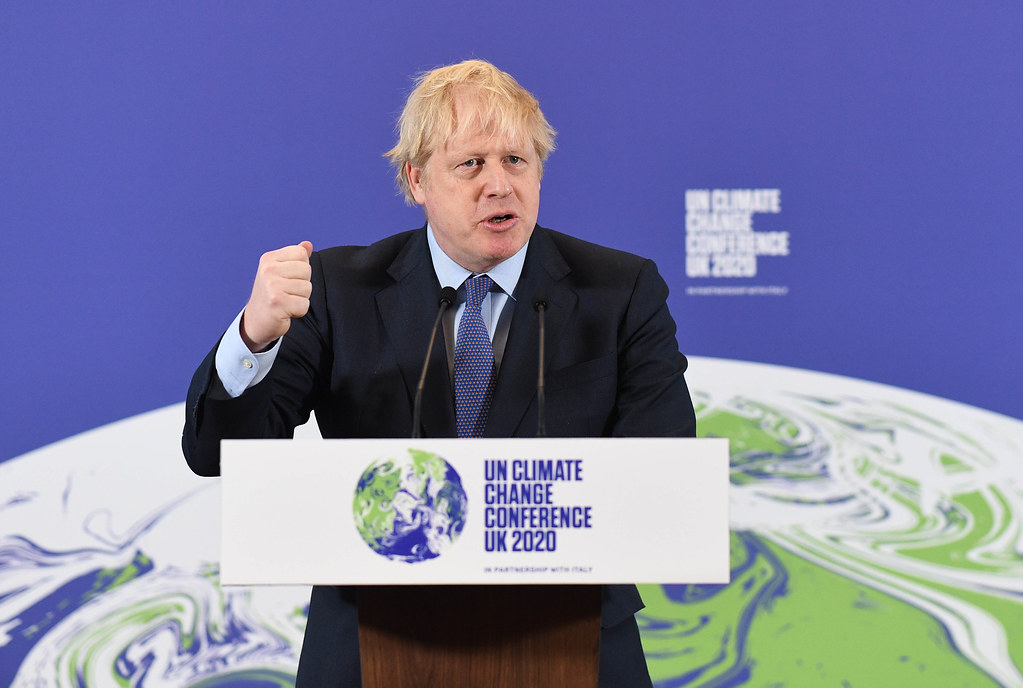This year’s COP26 summit in Glasgow has seen strong words from many world leaders on their commitment to tackle global climate change. However, when one looks at the concrete policies being carried out by these governments, it becomes clear that what world leaders are saying on climate and what is actually being done are two very different things.
A new report by Climate Action Tracker (CAT) published on Tuesday (November 9), warns the commitments made at COP will be insufficient to meet the Paris Climate Agreement global temperature target. The current target is to limit global temperature increase to only 1.5 degrees centigrade by the year 2100, however CAT estimates a warming of 2.7 degrees in that time, based on countries’ current policies and commitments.
At this year’s COP, many countries ignored the Paris agreement requirement that each summit sees a progression on the last set of targets, called Nationally Determined Contributions (NDC). Many nations have simply resubmitted their 2015 targets. This includes Australia, who have not committed to a stronger target but instead claimed their intention to exceed their NDC by 9%. That the Australian government would refuse to commit to greater contributions, only suggesting they will exceed these, shows most clearly the attitude of many politicians – where they continue to not take climate change seriously, and act as if words speak louder than actions.
One of the key failures in climate policy is the move away from coal-generated energy. To meet the 1.5 degrees target, OECD countries need to phase out coal by 2030, and all countries 2040. Three such OECD countries, Australia, Japan, and South Korea still plan to incorporate coal as a major source of energy in 2030.
The CAT report also highlights how the increased use of natural gas will only hinder the fight against climate change. Instead of moving from coal power to solely renewables, some countries have been moving instead towards an increased incorporation of natural gas. Large natural gas infrastructure is being built in “Europe (Nord Stream 2 for imports from Russia), Canada (expansions of pipelines for export), Australia and the USA (LNG [liquified natural gas] exports)”.
Climate Analytics estimated in a report this November that the Global Methane Pledge to cut methane emissions by 30% by 2030 will only reduce the emissions gap by 14%. Such a gap describes the difference between current pledges and the actual policies necessary to achieve the 1.5 degrees target. The Climate Analytics estimation considers all methane reductions as additional to current measures, so the real impact is likely even lower. The USA, for example, partially included the methane pledge in their recent long-term strategy, meaning their cutting of emmissions may be less than that considered in estimates.
Though most G20 countries signed the Global Forest Finance Pledge, this will only serve to mitigate global climate change if the promised funding is in addition to current spending promises, rather than cutting into other measures. It is especially important that this funding not be drawn from existing climate commitments considering forests cannot be relied on to capture all carbon emissions. Proper decarbonisation would have to be implemented across all sectors. “Currently”, explains the CAT report, “CO2 emissions from land-use, land-use change and forestry make up roughly 5% (1 GtCO2e) of the emission gap in 2030”.
The attitude of many world leaders at COP, especially western governments, has been that of promising the bare minimum of meeting climate targets, while in practice failing even to enact policies that achieve these aims. So many politicians at Glasgow this past week have shown they still will not do what it takes to mitigate the level of global climate change. The recent IPCC report has shown that to meet the 1.5 degrees target, global emissions must decrease by 45% of present levels by 2030. Including this year’s new NDCs, the world will see only a 15-17% reduction in emissions.
Capitalist governments will always be beholden to the interests of the big coal and gas corporations, not the workers of the world. This is why most of these commitments have been so mild. While these politicians, and the corporate elites who fund them, can afford to escape the worst impacts of climate change, the poorest in the world will bear the brunt of their failures on climate. Only a fundamentally different economy is compatible with a green future – an economy that serves the interests of the working class, not the wealthy few. Time is running short to take on global climate change, leaving us with two clear options: socialism or extinction.
Philip English, is a member of the YCL’s Birmingham branch



